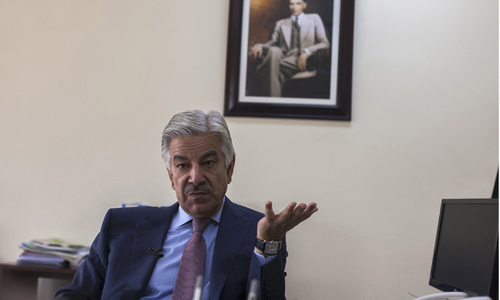India to speed up hydropower building on rivers flowing into Pakistan
NEW DELHI: India will accelerate its building of new hydro-power plants along three rivers that flow into Pakistan, a source familiar with the plan said on Monday, in a move likely to aggravate already tense relations with its neighbour a week after an attack on an Indian army base.
Disagreements over how to share the waters of the Indus and other rivers have dogged relations between the nuclear-armed arch-rivals since independence in 1947.
The dispute looks set to be reignited after Prime Minister Narendra Modi told officials on Monday that India should use more of the rivers' resources, speaking a week after the Sept 18 attack on an army base in the disputed region of Kashmir that New Delhi blames on Pakistan, a source with knowledge of the meeting attended by Modi said.
India has vowed to respond to the raid, in which at least 18 of its soldiers were killed, but any military option risks escalation. Some officials have called for a renewed diplomatic offensive instead.
Modi said on Saturday that India would mount a global campaign to isolate Pakistan, including through the United Nations, where Foreign Minister Sushma Swaraj spoke on Monday.
India has long accused Pakistan of backing militant groups operating in the Himalayan state of Jammu and Kashmir, through which several of the countries' shared rivers flow.
Pakistan denies the allegations and says India has not provided adequate proof to support its claims. A spokesman for Pakistan's foreign office did not immediately respond to a request for comment about Modi's hydropower plans.
At Monday's meeting, Modi and officials discussed ways to increase exploitation of the Chenab, Jhelum and Indus rivers but said they would not violate a long-standing water treaty between the countries in the process.
“We want to see that all these (hydropower) projects are put on a really fast-track basis,” the source told Reuters, speaking on the condition he was not named because of the sensitivity of the meeting.
“Our entire approach was done to create an atmosphere of goodwill. But in this atmosphere, we want to exploit all our rights under the (Indus Waters) treaty,” the source said.
The Indus Waters Treaty was signed in 1960 in a bid to resolve disputes, but India's ambitious irrigation plans and construction of thousands of upstream dams has continued to annoy Pakistan, which depends on snow-fed Himalayan rivers for everything from drinking water to agriculture.
India says its use of upstream water is strictly in line with the 1960 agreement.
India currently generates about 3,000MW of energy from hydropower plants along rivers in India-held Kashmir, but believes the region has the potential to produce 18,000MW, the source said.
New Delhi will also review whether to restart construction of the Tulbul navigation project, which was suspended several years ago. The project proposes diverting water from one of the shared rivers to a city in India-held Kashmir that could impact flows downstream, the source said.
A spokesman for Modi's office declined to comment.














































